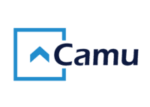Customer Experience with Camu @ TCE, Madurai
As part of the constant efforts to learn from our customers, AR Swaminathan, CEO, Octoze Technologies conducted an Interview with Prof. S. J. Thiruvengadam, Dean of Academics, Thiagarajar College of Engineering. Excerpts from the interview are shared here.

[Prof. Thiruvengadam, TCE] A: There are several reasons for this. Firstly, I noticed that Camu is a complete software for academic institutions. It covers everything from student admission to graduation in a single platform. Secondly, the implementation and support team were responsive to institution’s requirements and was quick in delivering any customization. Apart from these, the software was very user-friendly, and the institution could generate many reports.
[Swaminathan, Camu] Q: What is your opinion of the fully flexible choice-based credit system functionality in Camu?
[Prof. Thiruvengadam, TCE] A: Excellent software for implementation of CBCS. The concept of CBCS was available in Camu since the beginning and has been used in several countries. This was a pleasant surprise to us when we wanted to introduce CBCS way back in 2015 that there was a product that was already internationally validated and proved its merits. Over the past few years, we have noticed that there were further improvements to suit the specific needs of Indian Institutions. We worked with Camu and fine-tuned the CBCS process for the Indian Scenario and for our specific needs.
[Swaminathan, Camu] Q: What is your opinion of the outcome-based education functionality in Camu?
[Prof. Thiruvengadam, TCE] A: OBE module in Camu is developed to cater to suit the requirements from National Board of Accreditation (NBA) and National Assessment and Accreditation Council (NAAC).
[Swaminathan, Camu] Q: What is your opinion of the Controller of Examinations Module in Camu?
[Prof. Thiruvengadam, TCE] A: Since Examinations are seamlessly integrated with Academics module, the publication of results is very quick. Any updates can be tracked easily, and it avoids any errors in the system.
[Swaminathan, Camu] Q: How do your teaching faculty engage with Camu for Academics?
[Prof. Thiruvengadam, TCE] A: Teachers offer several courses to which students can register. Teachers are empowered to design syllabus, set question papers based on Bloom’s Taxonomy, design and develop online assessments, course plans, quizzes, mark attendance through mobile app, get feedback about the course, understand the student performance through application of rubrics. Teachers are even using Flipped Classrooms.
[Swaminathan, Camu] Q: What is the experience of your administration while using admissions and fee management modules?
[Prof. Thiruvengadam, TCE] A: We had our own admissions software in the campus, developed by the institution. Camu team assisted in migrating all the information from our system to Camu via Excel sheets. I have not used the Fee Management Module.
[Swaminathan, Camu] Q: What is your overall view about the implementation? How long did it take? What tasks did the college have to do for implementing Camu?
[Prof. Thiruvengadam, TCE] A: The implementation was to automate academic processes, especially curriculum design, content delivery and assessments. Also, the key was to adopt OBE and CBCS. We could migrate from our earlier system to Camu within a month without interrupting the key functions of the Institution. Then in phased manner, more advanced modules were brought into use.
[Swaminathan, Camu] Q: What is your view about the implementation team from Camu?
[Prof. Thiruvengadam, TCE] A: They have supported us in many of our new initiatives in the academic processes. Any issues in the software, they attend immediately. I would rate the quality of services as excellent. Additionally, the team offered training to all teachers and staff of the institution to use the software. Then, based on the roles and initiatives different faculty members took, there were additional training sessions to support them in implementing their processes.
[Swaminathan, Camu] Q: What is the Return on Investment you see by implementing Camu?
[Prof. Thiruvengadam, TCE] A: ROI was not our focus. Our objective is that all academic processes should be integrated into a single system so that faculty time will be spent much on academics and research activities than on documentation and analysis.
[Swaminathan, Camu] Q: What would you do differently if you could do the implementation again? In other words, what is your suggestion for other institutions willing to implement Camu?
[Prof. Thiruvengadam, TCE] A: Initially, we could not give Camu much time for testing the system to support our new initiatives. Now, we are doing a thorough review of the modules and functionalities before releasing them to students and faculty. This reduces the gap between expectations and delivery.
[Swaminathan, Camu] Q: What are the improvements you propose for Camu?
[Prof. Thiruvengadam, TCE] A: Since Camu captures a lot of information, we expect Camu to provide more reports such as Course Outcome Attainment and Program Outcome Attainment Reports. Also, it would be useful to provide Performance Appraisal Module for faculty, since this is a pressing need for many institutions now.






